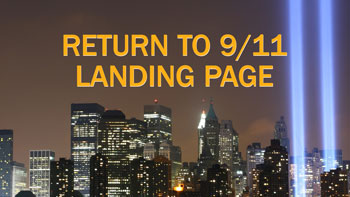Islam and America
Miller Center events explored how the attacks affected an already fraught relationship between the United States, Muslim nations, and Islam itself
One of the first Miller Center speakers to address the political, religious, and cultural aspects of September 11th was the well known political scientist Francis Fukuyama, who visited the Center in July 2002. Fukuyama's book The End of History and the Last Man, originally published in 1992, argued that liberal democracy and free-market capitalism were destined to become the preeminent forms of social organization following the fall of the Soviet Union. He explored that thesis in light of the attacks.
In March 2003, John Esposito, founding director of the Center for Muslim-Christian Understanding in the Walsh School of Foreign Service at Georgetown University, explored the ramifications of September 11th on U.S. policy towards the Islamic world.
The following week, David Little, the T. J. Dermot Dunphy Professor of the Practice in Religion, Ethnicity, and International Conflict and director of Initiatives in Religion and Public Life at Harvard Divinity School, visited the Center to look at religion an American foreign policy after 9/11.
Farhang Rajae of Carleton University specializes in political theory and international relations with emphasis on non-Western traditions, particularly modern Islamic political thought. In late April 2003, his talk explored Islam and terrorism.
In April 2004, Michael G. Knapp, who explored the concept and practice of jihad for the U.S. Army War College Quarterly, examined the same topic for the Miller Center.
UVA politics professor and Miller Center senior fellow John Owen joined his UVA colleague Ahmed Al-Rahim in 2015 to analyze the strong negative views many Americans have of Islam. Acts committed in the name of Islam, said Owen, “are not to be confused with the religion of Islam itself any more than some of the atrocities and wars of five hundred years ago in Europe should be confused with Catholicism or Calvinism or Lutheranism.”
Carla Power is a journalist specializing in Muslim societies, global social issues and culture and the author of If the Oceans Were Ink: An Unlikely Friendship and a Journey to the Heart of the Quran. The book is an account of a year in intense study with the traditional Islamic scholar Sheikh Mohammad Akram Nadwi, and in her 2016 visit to the Miller Center, she discussed Islam with American Forum host Doug Blackmon.
